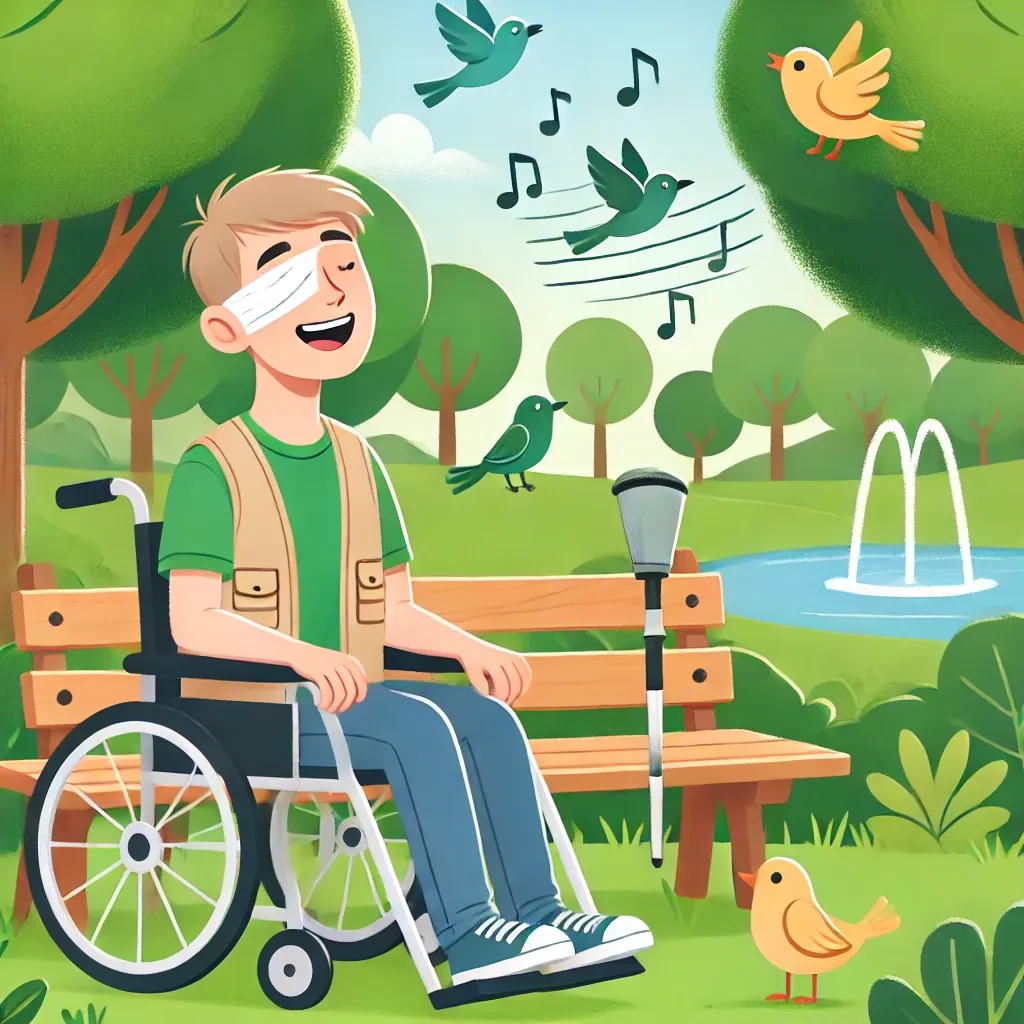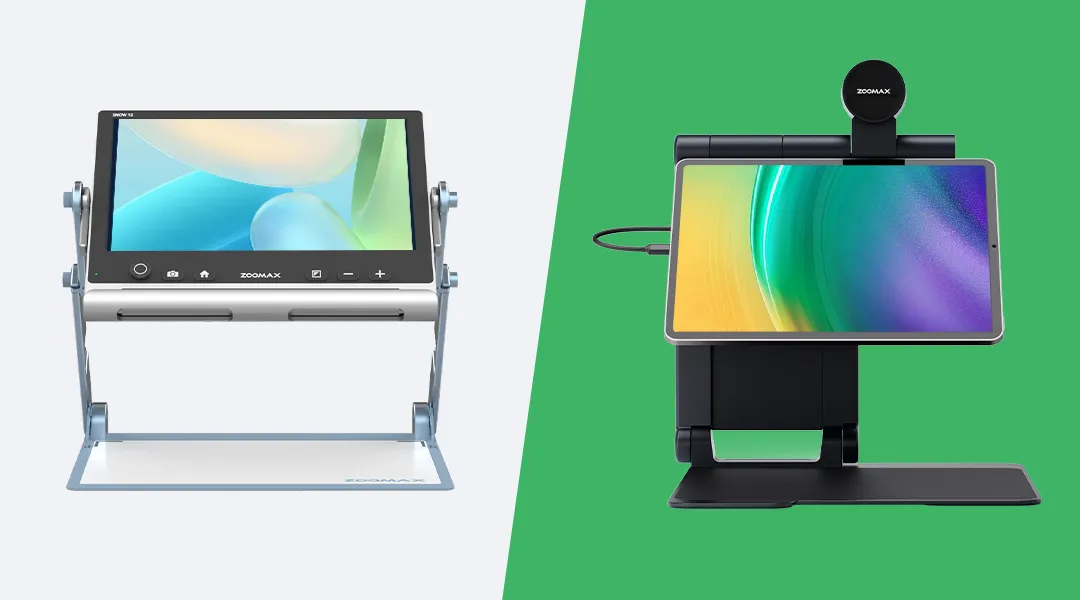Introduction
While low vision can present significant challenges, it can also lead to unexpected benefits that enhance life in unique ways. By focusing on these positive aspects, individuals with low vision can discover new opportunities for personal growth and fulfillment. Here are some of the benefits of living with low vision, both big and small, that can make a meaningful difference in daily life.
Enhanced Creativity
Alternative Problem-Solving:
Individuals with low vision often develop creative solutions to everyday challenges. This ability to think outside the box can lead to innovative ideas and approaches that benefit both personal and professional life. Whether it’s devising new ways to organize their surroundings or finding novel methods to complete tasks, this creativity often extends beyond their own experiences to influence and inspire others.
Unique Artistic Perspectives:
Low vision can inspire unique artistic expressions, whether in music, painting, or writing. Many artists with visual impairments have used their experiences to create works that resonate deeply with audiences. These unique perspectives can offer fresh insights and emotional depth, enriching the artistic landscape and providing powerful connections with their audiences.
Increased Empathy and Compassion
Greater Empathy Towards Others:
Experiencing life with a visual impairment can foster a deeper understanding and empathy for others facing challenges. This heightened sensitivity can strengthen relationships and build a supportive community. The shared experiences and mutual support within this community often lead to profound bonds and a sense of belonging.
Improved Listening Skills:
 With less reliance on visual cues, individuals with low vision often become better listeners. This skill can enhance communication and make interactions more meaningful. By focusing more on verbal cues and the tone of voice, they often develop a heightened sense of awareness in conversations, leading to deeper and more effective communication. Know more at: Comprehensive Guide to Caring for Individuals with Low Vision
With less reliance on visual cues, individuals with low vision often become better listeners. This skill can enhance communication and make interactions more meaningful. By focusing more on verbal cues and the tone of voice, they often develop a heightened sense of awareness in conversations, leading to deeper and more effective communication. Know more at: Comprehensive Guide to Caring for Individuals with Low Vision
Improved Organization and Planning Skills
Enhanced Organizational Skills:
Managing daily tasks with low vision often requires meticulous planning and organization. This skill can translate into greater efficiency and effectiveness in various aspects of life. From work to personal affairs, the ability to plan ahead and stay organized becomes a valuable asset that can lead to success in multiple areas.
Attention to Detail:
While low vision may make it challenging to see the big picture, it can also lead to a heightened focus on details. This attention to detail can be advantageous in fields like proofreading, quality control, and craftsmanship. This meticulous nature can enhance the quality and precision of work, leading to higher standards and satisfaction.
Emotional and Personal Growth
Strengthened Resilience:
Overcoming the challenges of low vision can build resilience and determination, helping individuals face other life obstacles with confidence and strength. This resilience often becomes a core part of their identity, enabling them to tackle new challenges with a positive and tenacious mindset.
 Greater Appreciation for Simple Pleasures:
Greater Appreciation for Simple Pleasures:
Low vision can lead to a greater appreciation for small joys, such as the sound of birds singing or the feel of a soft breeze. This appreciation can enhance overall life satisfaction and happiness. By finding joy in the simple things, individuals can cultivate a sense of contentment and peace.
Community and Social Impact
Advocacy and Leadership Opportunities:
Many individuals with low vision become advocates for accessibility and inclusivity, using their experiences to drive positive change in society. This role can lead to fulfilling leadership opportunities and a sense of purpose. By championing the rights and needs of the visually impaired, they contribute to a more inclusive and understanding world.
Stronger Community Bonds:
Participating in support groups and communities for those with visual impairments can lead to strong, supportive friendships and a sense of belonging. The blind and visually impaired community often provides a network of support, offering help and companionship through various conferences, events, and groups, both virtual and in-person.
Practical Benefits
Access to Assistive Technology:
Advances in technology offer a wide range of tools and devices designed to assist those with low vision. From screen readers to smart home devices, these technologies can simplify daily tasks and improve quality of life. Assistive technology not only makes everyday tasks easier but also opens up new opportunities for learning and personal development.
Travel Perks and Discounts:
There are plenty of travel perks for the blind and visually impaired, such as skipping long security lines at the airport, boarding planes first, and receiving discounts on public transportation. These benefits make travel more accessible and enjoyable, allowing individuals to explore new places with ease. More information: Top Picks for Accessible Cruises and Travel: Visually Impaired Friendly Experiences

Guide Dogs:
Guide dogs bring numerous benefits, including providing constant companionship and assistance. One big plus is that you can take your guide dog almost everywhere you go, ensuring safety and independence in various environments. For more information, visit Guide Dog and Low Vision: Friend of Hope
Never Being the Designated Driver:
For individuals with low vision, driving may no longer be an option, which can alleviate the responsibility of being the designated driver in social situations. While the inability to drive can be a significant adjustment, it also means that there’s one less concern when attending social events. It’s important to acknowledge that adapting to low vision comes with challenges, but finding ways to embrace the positives can help in navigating these changes.
Environmental Awareness
Increased Environmental Awareness:
Relying on non-visual cues can lead to a heightened awareness of environmental factors such as smells, sounds, and textures. This can enhance one’s connection to the natural world and lead to a richer sensory experience. By engaging more fully with their surroundings through these senses, individuals can develop a deeper appreciation for the environment.
Technological Proficiency
Adaptation to Technology:
Many people with low vision become proficient with technology that assists them in daily life, such as OCR text-to-speech technology devices,e.g Snow 12 and screen readers. This adaptability can open up new career opportunities in tech-savvy roles. The skills developed in using these technologies can also enhance overall digital literacy and confidence. For more information, visit: Zoomax Low Vision Aids

Self-Discovery and Personal Fulfillment
Discovering Inner Strengths:
Living with low vision often leads to self-discovery, revealing inner strengths and capabilities that might have otherwise remained hidden. This journey of self-discovery can lead to greater self-awareness and personal fulfillment. Recognizing and embracing these strengths can be empowering and transformative.
Pursuit of New Interests:
Low vision can inspire individuals to explore new hobbies and interests, such as music, gardening, or tactile art forms. These pursuits can provide joy and a sense of accomplishment. Engaging in these activities can also foster creativity and provide therapeutic benefits.

Navigating in Low Visibility:
For individuals with low vision, living in a world with reduced visual input often leads to a heightened reliance on other senses. This familiarity with using alternative sensory cues can be incredibly beneficial, especially in situations where visibility is limited or during power outages. In these instances, individuals with low vision may find themselves better equipped to navigate their surroundings using touch, hearing, and spatial awareness, allowing them to move confidently even in darkness or low-light conditions.
Forming Deeper Connections:
For individuals with severe congenital low vision or blindness, where visibility is extremely limited, relationships are often formed through a deeper understanding that goes beyond physical appearances. Instead of relying solely on sight, these individuals tend to connect with others by truly listening and engaging with their character and personality. This ability to “see” with the heart and mind allows for forming deeper, more meaningful connections based on inner qualities, leading to more genuine and lasting relationships.
Conclusion
While low vision undoubtedly presents challenges, it also offers unexpected benefits that can enrich life in numerous ways. By embracing these positive aspects, individuals with low vision can lead fulfilling and rewarding lives. Whether it’s through enhanced creativity, stronger social connections, or increased empathy, low vision can be a catalyst for personal growth and societal impact.
References
World Services for the Blind. (2020, September 1). The benefits of being blind or visually impaired. Retrieved from https://www.wsblind.org/blog/2020/9/1/the-benefits-of-being-blind-or-visually-impaired
FAQs
What are some unexpected benefits of living with low vision?
Living with low vision can lead to enhanced creativity, improved problem-solving skills, and a unique artistic perspective. Individuals often develop a greater appreciation for simple pleasures and build stronger social connections due to increased empathy and improved listening skills. Additionally, the sense of community among the visually impaired offers significant social support and opportunities for advocacy and leadership.
How can technology assist individuals with low vision?
Technology plays a crucial role in assisting individuals with low vision. Assistive devices like screen readers, voice-activated devices, and smart home technology help simplify daily tasks. Electronic magnifiers and other visual aids enhance reading and viewing experiences. Artificial intelligence applications, such as image recognition and natural language processing, further improve accessibility and quality of life for those with visual impairments.
What travel perks are available for people with low vision?
People with low vision can enjoy several travel perks. They often receive priority boarding and can skip long security lines at airports. Public transportation discounts are commonly available, and having a guide dog allows for seamless travel with a trusted companion. These perks make travel more convenient and accessible for those with visual impairments.




